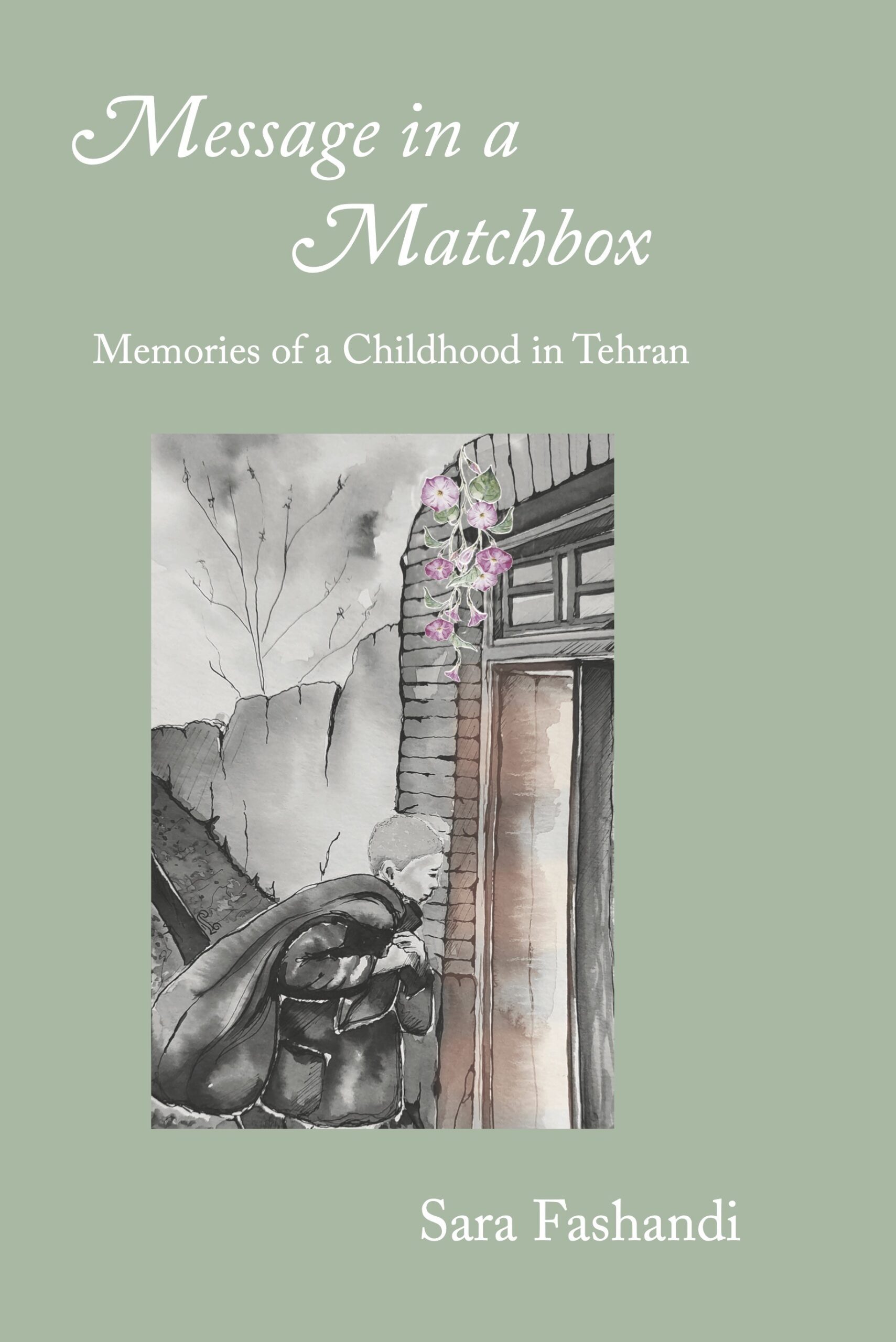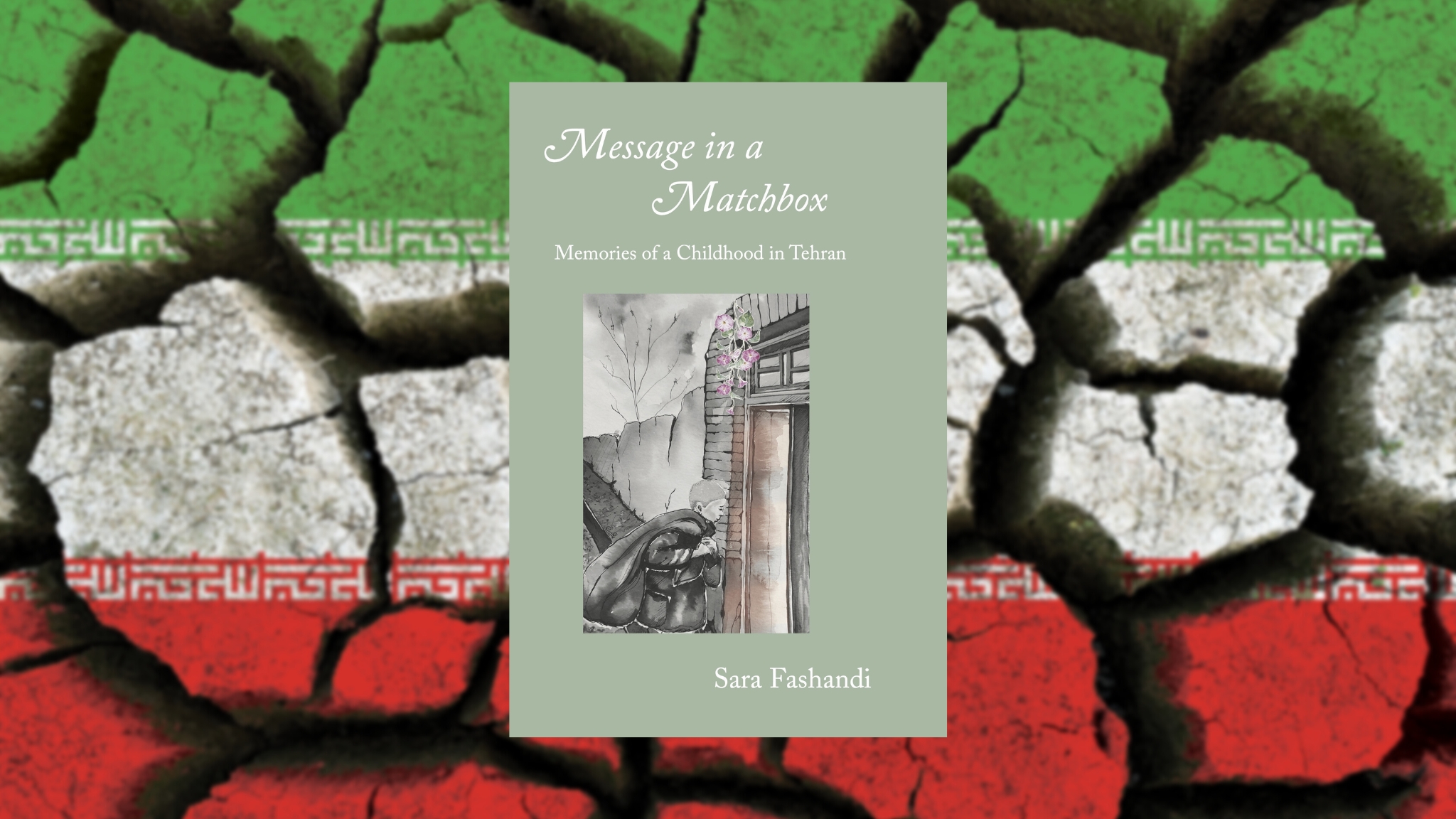Message in a Matchbox: Memories of a Childhood in Tehran by Sara Fashandi
What's It About?
The story of one man growing up in Tehran and the hardships that shaped him.During a family reunion in 2006, Sara Fashandi reconnected with her oldest brother, Mohsen, whose stories of growing up in Tehran, Iran, utterly amazed her. The experiences he shared from the ages of six to 23 were too good, she thought, not to share with the world. And lucky for the world, as Message in a Matchbox is an inspiring ode to her brother and the experiences that shaped the man he would become.
Fourteen years in the making, Message in a Matchbox is the fruit of numerous conversations — over the phone and in-person — with Fashandi’s eldest brother, Mohsen, who was born in Tehran and lived there before emigrating to America in 1978. Cataloging his most vivid memories and dramatic events from ages six to 23, Fashandi eloquently captures the young Mohsen’s trials and triumphs in the hand-to-mouth existence he shared with his struggling parents and younger siblings.
Written in Mohsen’s voice, Fashandi invites the reader to walk in the shoes of her brother as he relives some of the most painful — and the most joyful — moments of his life.
Life of Hardship & Resilience
His first memories at the age of six revolve around hunger, and it is a theme that continues throughout much of his childhood. It is also what helps him recall with such clarity his early life: “When your stomach is empty, you become more observant of your surroundings, you notice things you would not have normally, and you produce inventive ways to put some food in your body,” he says.
At age six, Mohsen and his two siblings lived in a tiny rented room with his young parents (both in their 20s). His father, Aghajoon, worked as a shoe repairman while his mother, Momman, sewed clothing for neighbors to help with the expenses. Feeding the family meant constant work, illustrated by Mohsen’s memories of waking up in the night to find his mother “in a corner, dimly lit by our lantern, her neck bent, her eyes focused, stitching away.”
As a youngster, Mohsen helped at his father’s small cobbler shop, remembering painfully how his father was more friendly with his customers than with him: “he frowned when he spoke to me; his black eyebrows furrowed together, and his black eyes narrowed.” Fashandi poignantly captures Mohsen’s hurt and confusion at his father’s animosity and physical abuse, which only ends when he is old enough to potentially strike back.
In one of the most moving chapters, “To Lose a Brother and Gain Another,” Mohsen tells the story of his two baby brothers, Saeed and Majeed, and how one was so ill he was expected to die, while the other became the light of his father’s eye. In a tragic irony, it is the healthy nine-month-old Majeed who tips over a boiling tea carafe and dies of his wounds, while Saeed overcomes his illness and thrives. But for Mohsen, the pain of losing Majeed is compounded by his father’s blame for the accident:
“Didn’t he realize I was only a child and needed to be comforted rather than reprimanded? Couldn’t he see my red and swollen eyes? Didn’t that tell him all he needed to know?”
But Mohsen’s story is one of mental resilience, and he puts his intelligence and natural inventiveness to work. He becomes adept at taking things apart and putting them back together, soon learning how electricity works and contributing to the household through his do-it-yourself fixes and repairs.
Stepping Into His Memories
Each story is a unique “day in the life” episode that puts one on the street with Mohsen as he and his sisters, friends and family weave in and out of each other’s hectic and hardscrabble lives. He aches to provide for his family as he can, especially for Momman, the rock of the family who never has a harsh word for her son. Seeing his mother’s face light up at finally owning their own home and acquiring their first refrigerator and television are reminiscences sure to make readers smile.
As her brother’s storyteller, Fashandi inserts herself into her brother’s shoes and creates heartwarming and witty dialogues with family, friends and coworkers. The pain of first love (and loss), as well as the awkward exchanges with girls are honest and real. She describes Mohsen’s first grueling summer job at a clothing factory and the hard lessons he learned about standing up for himself in every situation, as well as his stint in the Iranian army and the fruitless field work assigned to him in rural villages.
Indeed, life lessons abound in this charming volume of memories and the reader cannot help but root Mohsen on in his dream to go to university. When his application to study abroad in America is accepted, he emigrates in 1978 at the age of 23, having “lived a fuller life than most people can recount on their deathbeds.”
Message in a Matchbox is a beautifully written reminiscence of one boy’s journey to manhood, faithfully retold by his sister who, like the reader, seems to hear these stories for the first time. Fashandi’s prose is alive with colors, smells, tastes and the high emotion of youth searching for a place in a world where nothing is free, and everything has a price. This is one memoir not to miss.
 About Sara Fashandi:
About Sara Fashandi:
Sara Fashandi was born in Tehran, Iran. She moved to the United States in 1977 to attend college at The Ohio State University, where she earned a graduate degree in biochemistry. Sara currently lives in Northern California but considers herself a Buckeye. Message in a Matchbox is her first book.





